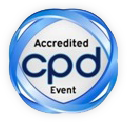
Michael J Coyne
Scottish Parasite and Diagnostic Reference Laboratory (SPDRL),UK
Title: Implementing an inter-laboratory exchange program for parasitology: Improving quality and strengthening links between two national diagnostic centres
Biography
Biography: Michael J Coyne
Abstract
Quality Assurance (QA) schemes are an essential requirement for accredited diagnostic laboratories, ensuring confidence in the tests performed. The Scottish Parasite Diagnostic and Reference Laboratory (SPDRL) subscribe to a wide range of QA schemes including UK NEQAS, molecular testing schemes for Cryptosporidium and Plasmodium species and an in-house internal quality assurance scheme (IQA). The UK NEQAS offer a broad range of parasitology schemes that SPDRL subscribe to; however no formal schemes exist for a small number of essential parasitology tests. In order to ensure quality is maintained in all areas of testing, an exchange scheme was established between SPDRL and the Liverpool School of Tropical Medicine (LSTM) in October 2014. This includes tests not covered in any other scheme available in the UK. The schedule includes three additional serological tests (Trypanosoma brucei gambiense IgG, Leishmania IgG, Fasciola IgG), one fecal antigen test (E. histolytica adhesin) and recently introduced assays for the molecular detection of Leishmania DNA. The scheme has been in operation for 18 months with each site alternating between issuing samples for testing on a monthly basis. The scheme has been beneficial in a number of ways: It has helped to satisfy the quality requirements of our accreditation bodies and has contributed to the consolidation of links between both centres, facilitating further collaboration such as the validation of new methodologies and the sharing of rarer sample material. This has been a very positive experience and we aim to continue to encourage this scheme to promote excellence, further collaborations and sharing of expertise.

